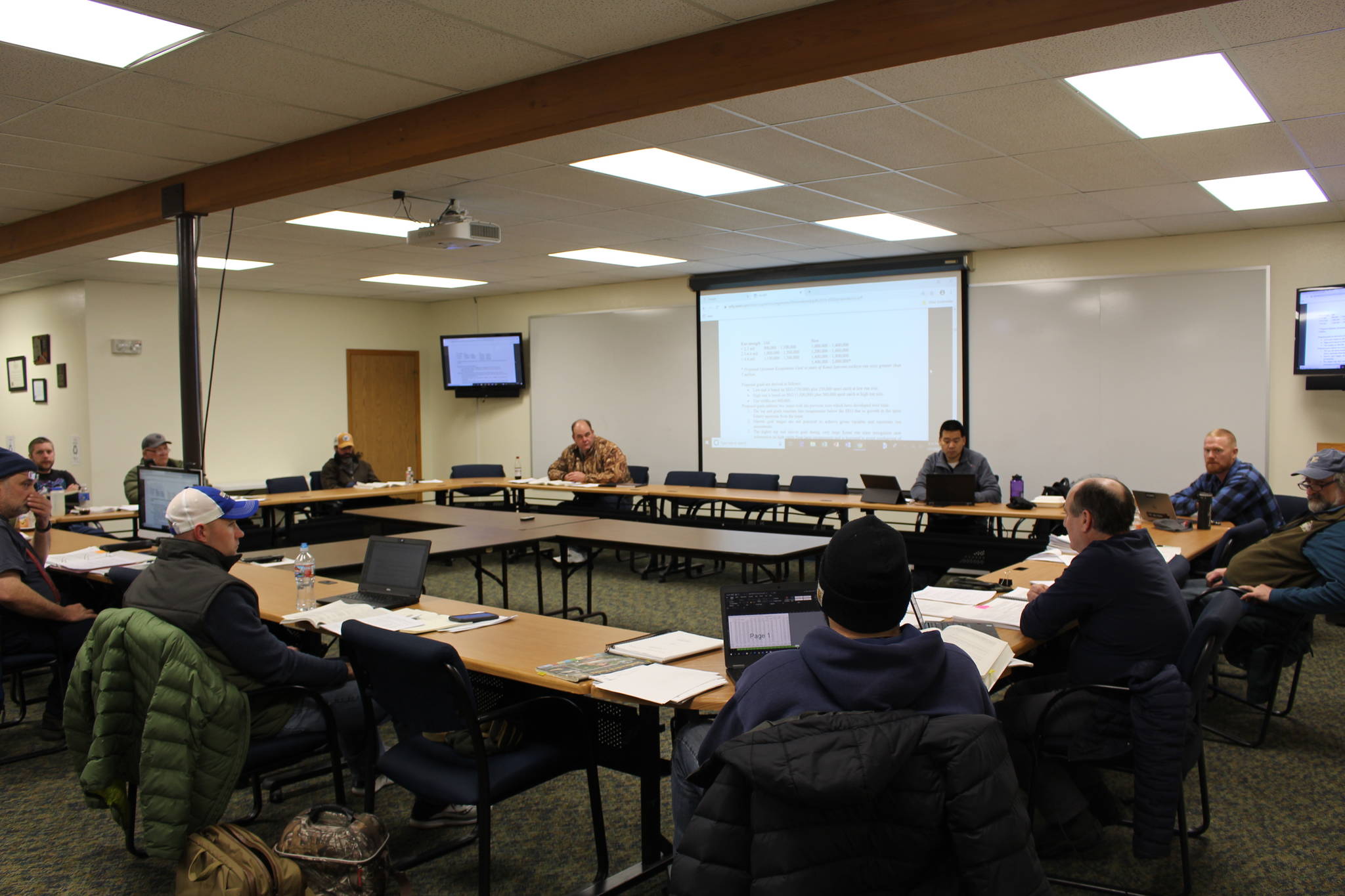Editor’s note: The headline for the online edition of this article has been changed to reflect that the Kenai/Soldotna Fish and Game Advisory Committee voted to support Proposal 108. The Department of Fish and Game has not taken a position on this proposal.
The local advisory committee for Upper Cook Inlet fisheries voted Tuesday night to support a proposal that would tighten restrictions on commercial gill net fisheries during late king salmon runs.
The Kenai/Soldotna Fish and Game Advisory Committee met at the Cook Inlet Aquaculture Association on Jan. 6 and 7 to discuss proposals that have been submitted to the Alaska Department of Fish and Game’s Board of Fish. These proposals will be considered by the Board of Fish in February when they look to amend the regulations for Upper Cook Inlet Finfish fisheries, and the advisory committee voted Tuesday night to support one of the proposals.
The proposal that was supported by the advisory committee, Proposal 108, would reduce the number of hours that the Upper Subdistrict set gill net commercial fishery may be fished as part of the paired restrictions for the Kenai River Late-Run King Salmon Management Plan. The original proposal excluded the East Foreland Section of the Upper Subdistrict set gill net commercial fishery from the restrictions, but the advisory committee voted to amend the proposal to include that area in the management plan.
Currently, the Department of Fish and Game is authorized to impose restrictions on both the sport and commercial fisheries in the Kenai River in order to meet the sustainable escapement goal of 13,500 to 27,000 king salmon during the late run, which lasts from early July to season closure.
Restrictions on one industry are paired to restrictions for the other, so for example if the use of bait is prohibited in the sport fishery, commercial fishing periods are open for no more than 48 hours per week. If both the use of bait and the retention of king salmon are prohibited in the sport fishery, commercial fishing periods are limited to 24 hours per week.
Proposal 108, if adopted by the Board of Fish in February, would cut the hours of operation for commercial fishing in half — 24 hours during times when bait is restricted and 12 hours when both bait and retention are prohibited for the sport fishery. The proposal would also mandate that those periods be limited to one or two 12-hour contiguous periods.
Todd Smith, who sits on the advisory committee as a commercial set net fisherman, opposed the proposal and said that restricting the commercial operations to 12 hours a week is “just not workable.”
“24 hours is workable, but it’s bare minimum,” Smith said. “Twelve hours is like, what’s the point in being there?”
Paul A. Shadura II, who serves as vice chair of the committee and also represents commercial fisheries, said that reducing the hours for king salmon harvesting will also have an impact on the sockeye salmon harvest, and asked Commercial Fisheries Area Management Biologist Brian Marston if this proposal would have an “appreciable” impact on increasing the number of king salmon in the river.
Marston said that the increased restrictions would increase the number of king salmon in the river, but could not quantify how large the increase would be.
Marston also said that by cutting the hours of operation for commercial fisheries in half, the harvest for those commercial operations could be reduced by a similar amount. Advisory Committee Chair Mike Crawford, who holds a guided sport fishing seat, challenged that assertion.
“I know there’s a 50% reduction in time allowed, but you really think that’s gonna cut their catch by 50%?” Crawford said. “You guys have gotten very good at manipulating your hours around tides and to maximize the amount of time out there, so you really think it’s a 50% cut?”
Marston said that the reduction in harvest wouldn’t be as large if the operations weren’t also limited to one or two 12-hour blocks.
“You’re right, if I could parse up that 24 into three eight-hour blocks, then I could probably still catch more than half even though it’s still only half of my normal time,” Marston said. “But if we’re forced to also do it in particular blocks then that would make it even harder.”
The advisory committee voted to support Proposal 108 as amended by a vote of 6-5.

